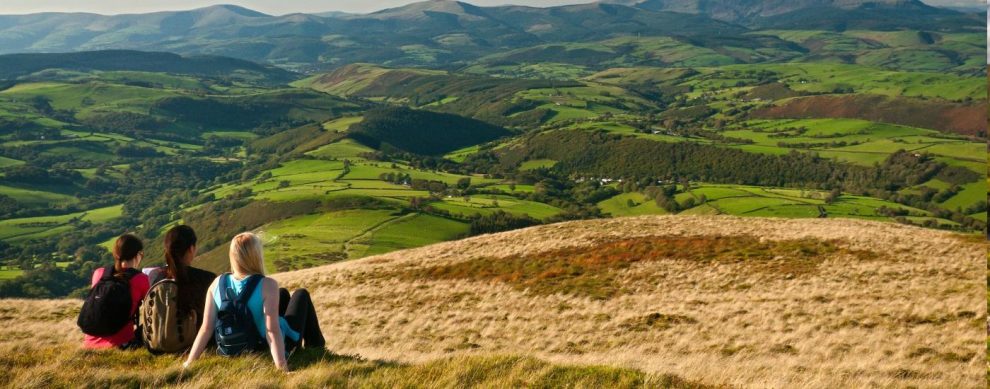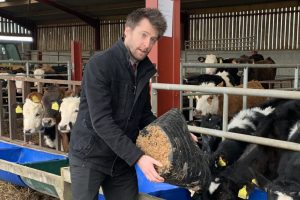THE SUSTAINABLE MANAGEMENT of Natural Resources Consultation process has finally concluded, but there’s no sign of progress, according to Rebecca Williams, Director of CLA Cymru.
Saying that the time has come to make decisions, Ms Williams said: “How we manage our natural resources, must form part of our vision for a vibrant, sustainable, competitive rural economy delivering against a range of public goods.
Responding to the Welsh Government Environment Minister, Hannah Blythyn AM’s statement summarising the responses to the Sustainable Management of Natural Resources (SMNR) consultation, Rebecca Williams, Director CLA Cymru, said: “We have a unique opportunity to define the future of land management in Wales. Our government processes really must deliver better and faster results. We need to find answers to the vital questions in land management about how the Welsh Government’s Five Core Principles be delivered as a working plan.”
“Last year’s SMNR consultation addressed a very broad range of issues many of which were complex, others seemed disjointed from the main theme. This was an unwieldy and demanding exercise both for organisations and for individuals. The process was protracted, the outcome has been delayed. The substantial number of responses may be encouraging to the Government, but it does also bear witness to the level of concern about the potential vital impact the proposals may have on rural business and the countryside community. There is no doubt that greater subtlety and engagement is required in stakeholder-management.”
While there were over 19,000 responses to the consultation, over 16,000 of those were focussed on one issue – access to land. Of those 16,000 responses, only around 450 answered the questions posed by the consultation and there was a massive number of responses from individuals and campaign groups in favour of widening access to the countryside.

The Welsh Government has, however, shied away from specific legislation to provide greater rights for ramblers, canoeists, cyclists, and other groups in favour of achieving more access to Wales’ countryside.
In a written statement delivered to the Assembly on June 19, Environment Minister Hannah Blythyn said: “There were strong but differing views on how best to reform access legislation. We therefore believe that now is not the right time for substantive reform. But we are committed to exploring selected aspects of change where there was greater consensus, including on some of the administrative arrangements and multi-use paths. We will continue to facilitate further discussions through established groups such as the National Access Forum.”
Those remarks have been met with disappointment from Ramblers Cymru, the charitable organisation and campaign group that fights for walkers’ access to land.
Angela Charlton, Director of Ramblers Cymru told The Herald: “‘As Wales’ walking charity working to protect and expand the places people love to walk, Ramblers Cymru is disappointed that a year after this consultation was held, we are no clearer about Welsh Government’s ultimate vision for improving access to the Welsh outdoors.”
Ms Charlton drew attention to consultations not producing positive results in terms of policy or legislation, continuing: “We have had 2 major consultations on these issues in the last 3 years, and now face further consultation on as yet undefined changes.
“Through our campaign over 2,500 people took the time to support our call for increased and improved access and protection of our paths, and it is frustrating that we seem no closer to seeing the changes needed. We are however, pleased to continue engaging with Welsh Government to ensure Wales is a world class country for walking and will continue putting proposals forward to help achieve this.”
While the NFU noted the strength of the responses regarding access to land, NFU Cymru President, John Davies said: “The consultation contained a number of proposals that were extremely worrying to farmers including granting higher access rights which would have enabled cycling and horse riding on footpaths as well as extending and amending the list of restrictions on CRoW land. We, therefore, welcome the announcement from the Environment Minister that now is not the right time for substantive reform.”
John Davies continued: “We note, however, the Welsh Government is committed to exploring aspects of change where the consultation process showed greater consensus including some of the administrative arrangements and multi-use paths. We await information on what these specific areas will be and would highlight that, given 80% of the land area of Wales is agricultural land, farmers are key providers of the landscape and countryside upon which many access and recreational activities depend. Any reforms must consider the safety of access users and should not result in increased costs, burden and liabilities being placed on farmers in Wales.
“We are pleased that the consultation process revealed consensus in the area of keeping dogs on fixed length leads in the vicinity of livestock, which was a generally accepted proposal. The worrying of livestock by dogs is a key concern to our members and we would hope this is an area that can be progressed in the near future.”
FUW President Glyn Roberts said: ” The FUW welcome the news that the Welsh Government have decided now is not the right time for a substantive review to reform access legislation.
“Wales has approximately 16,200 miles of footpaths, 3,100 miles of bridle-paths, and 1,200 miles of byways, and since 1998 the area of land accessible by right to the public has increased threefold. The evidence makes it clear people are not using what is already there, so any changes should focus on increasing responsible use of existing access.”














Add Comment